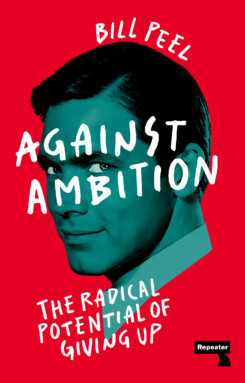£7.99 – £30.00
Mimesis, Expression, Construction brings Fredric Jameson’s famous Duke University seminar on Adorno’s Aesthetic Theory into print for the first time.
Transcribed and edited from audio recordings taken by Octavian Esanu of the original seminar at Duke University in 2003, Mimesis, Expression, Construction reproduces Jameson and his students’ engagement with Aesthetic Theory, one of the most influential theories of modernist aesthetics.
The first and only published record of Jameson’s teaching and pedagogic style, the seminar delves into modern and modernist aesthetics through the perspectives of Kant, Hegel, Freud, Schopenhauer, and Nietzsche; Benjamin and other members of the Frankfurt School; the literary works of Thomas Mann and Samuel Beckett; the music of Schoenberg, Webern and Berg; the films of Chaplin, Vertov and Eisenstein; the aesthetic implications of psychoanalysis and biblical exegesis; classical music; and more.
Presented in the format of a play, with stage setting, student interruptions and exchanges, interjections, auditory noises, and ambient sounds, and complemented with scans of students’ notes, Mimesis, Expression, Construction is a groundbreaking addition to the work of one of the greatest modern cultural critics.
Fredric Jameson (born April 14, 1934) is a prominent American literary critic, philosopher and Marxist political theorist. He is currently Knut Schmidt-Nielsen Professor of Comparative Literature and Romance Studies (French) and the director of the Center for Critical Theory at Duke University. Among his best-known titles are Marxism and Form; The Political Unconscious: Narrative as a Socially Symbolic Act; Postmodernism, or, The Cultural Logic of Late Capitalism; A Singular Modernity; Valences of the Dialectic; and The Antinomies of Realism.
Octavian Esanu is an associate professor in the Department of Fine Arts and Art History and Director/Curator of the American University of Beirut Art Galleries. He is the author of What Does “Why” Mean?; Transition in Post-Soviet Art; Art, Awakening and Modernity in the Middle East; Contemporary Art and Capitalist Modernization; and The Postsocialist Contemporary.
“Mind-blowing… What we get here is not the insight in some secret core of Jameson’s thought lost in later gentrified published versions but, on the contrary, a flow of improvisations and mental experimentations where the detours through secondary topics are often more precious than the main line of argumentation.”
“Dialectics, understood performatively, means experiencing the drama of exploration and discovery, while remaining alert to the contradictions and obstacles to closure that inevitably arise on the journey. In rescuing Jameson’s 2003 lectures on Adorno’s Aesthetic Theory from oblivion and presenting them to us in all their messy vitality, Octavian Esanu allows contemporary readers to experience vicariously the struggles of one master dialectician to explicate and criticize the efforts of another.”
“Jameson on Adorno? It’s like reading Benjamin on Brecht, or Sartre on Baudelaire. A great Oedipal drama.”




